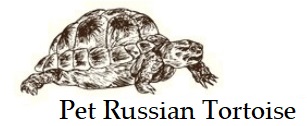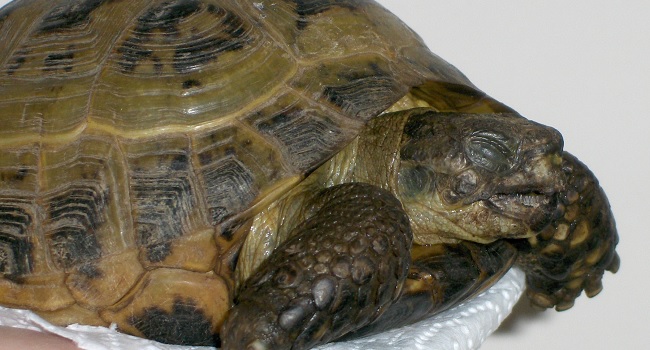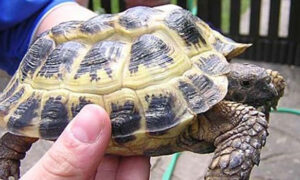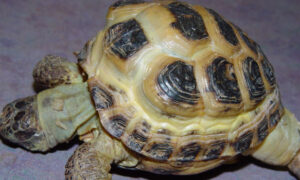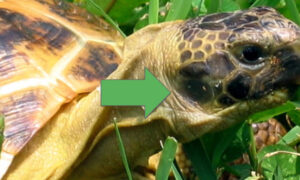Many people tend to refer to respiratory infection in Russian tortoises as a cold or flu. You can treat mild cases at home, whereas more severe cases require a reptile veterinarian. Respiratory infection is probably one of the most common illness in tortoises. There are two types of respiratory infections – upper and lower respiratory infections. The upper respiratory infection is more common, whereas the lower respiratory infection tends to require more aggressive treatment.
Cause of Respiratory Infection
The cause of respiratory infection in Russian tortoises is not entirely known. However, there are possible causes like low temperatures, drafty habitats location, too-high humidity, bacteria, fungus or a post-hibernation illness.
Treat Respiratory Infection in Tortoises
Respiratory infections in tortoises can be easy to treat or they can require veterinarian care, depending on the severity of the infection.
Treatment can be simple depending on the cause and severity of the infection. Firstly, separate the infected tortoise in a hospital enclosure with slightly increased temperatures (about 5-10°F). Make sure the basking site is 100°F and the ambient temperature is no lower than 80°F.
Use new substrate or paper towels. Keep the enclosure clean. Move the enclosure away from drafts or fans.
Next, make sure to soak the tortoise in warm water daily. The warm water will loosen any mucus in the nose. When you remove the tortoise, tilt it to let any mucus drain.
Lastly, ensure the Russian tortoise is eating. If it is not, try a different food, like tortoise pellets or flowers to entice eating.
Do not let the symptoms go on for too long. Seek veterinary care if the symptoms do not ease in a few days. A vet may prescribe antibiotics, anti-fungal meds and/or anti-viral medications depending on the cause of the infection. Do not let the vet give your Russian tortoise vitamins injections, as this can cause an overdose. Reptiles do not poop out extra vitamins like mammals, causing a buildup inside the body.
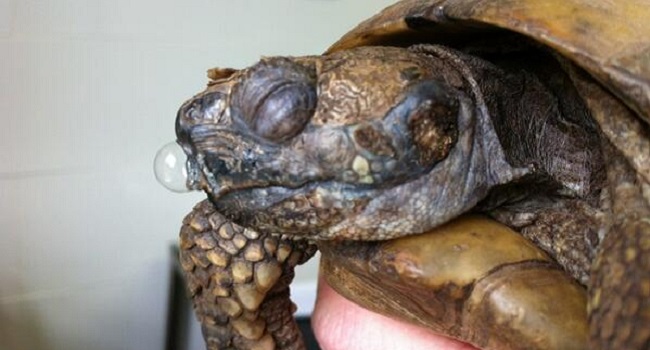
Upper Respiratory Infection in Tortoises
Upper respiratory infection is the more common of the two types of respiratory infections. It is thought to be caused by a bacteria that naturally blooms under certain circumstances. Stress, poor hygiene, poor temperature control, too-high humidity, bad diet, etc are also thought to be the cause.
Signs of an upper respiratory infection in tortoises include:
- Runny nose
- Erosions around the nose
- Bubbles coming out of the nose
- Swelling around the eyes
- Reddened, inflamed eyes
- Lethargy
- Lack of appetite and possible weight loss
- Clicking or noises when breathing
- Labored breathing
If the infection was caused by mycoplasma bacteria, the Russian tortoise will be infected for life. Under certain circumstances, the tortoise can have periodic flare-ups.
Lower Respiratory Infection in Tortoises
Lower respiratory infections are typically more severe and therefore require an aggressive treatment. The cause of a lower respiratory infection could be as simple as insufficient vitamin A, bad diet, low temperatures or mites. However, certain bacteria can be the cause, as well as Aspergillis or Candida fungus, retroviruses or herpesvirus.
Signs of a lower respiratory infection in tortoises are similar to that of an upper respiratory infection and can include:
- Nasal drainage
- Weakness
- Lethargy
- Sunken eyes
- Labored breathing often accompanied by a noise
- Lack of appetite
A reptile veterinarian will most likely take x-rays as well as samples to diagnose a lower respiratory infection. Depending on the results, the vet will be able to diagnose and determine the best treatment.
